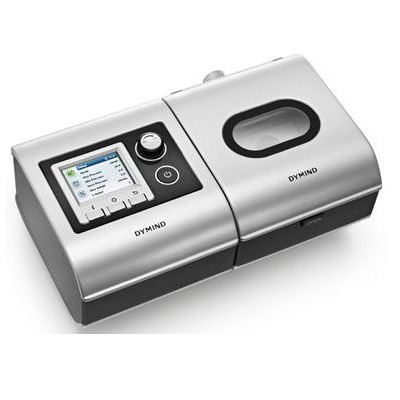New AI Platform to Analyze NHS Radiological Scans
|
By HospiMedica International staff writers Posted on 30 May 2019 |

Image: The DGX-2 two petaFLOPS supercomputer system (Photo courtesy of Nvidia).
A novel artificial intelligence (AI) system intended for the United Kingdom National Health Service (NHS; London) will automate nationwide radiological interpretation across multiple clinical pathways, including oncology, cardiology, and neurology.
The AI project is a joint effort of Nvidia (Santa Clara, CA, USA) and King’s College London (KCL; United Kingdom), which will build and train the AI platform to interpret radiological scans for hospitals across the UK. The technology would thus free up overworked specialists and could also lead to breakthroughs across the medical imaging landscape, from determining the root cause of various cancers to helping classify specific neurological impairments and identifying optimal treatment plans.
At the core of the first stage of the project is a graphics processing unit (GPU)-powered two-petaflops Nvidia DGX-2 supercomputer, combining 16 interconnected GPUs, which Nvidia claims is currently the world's most powerful AI system. The project will also employ the Nvidia Clara AI toolkit, an open-source NiftyNet image-analysis neural-network, and a host of supplemental imaging technologies from existing NHS partners such as Kheiron Medical (London, UK), Mirada (London, UK) and Scan.
“Together with King's College London, we're working to push the envelope in AI for healthcare,” said Jaap Zuiderveld, vice president for Europe, the Middle East and Africa (EMEA) at Nvidia. “DGX-2 systems with the Nvidia Clara platform will enable the project to scale and drive breakthroughs in radiology [and] ultimately help improve patient outcomes within the NHS.”
“This center marks a significant chapter in the future of AI-enabled NHS hospitals, and the infrastructure is an essential part of building new AI tools which will benefit patients and the healthcare system as a whole,” said Professor Sebastien Ourselin, PhD, head of the School of Biomedical Engineering & Imaging Sciences at KCL. “The Nvidia DGX-2 AI system's large memory and massive computing power make it possible for us to tackle training of large, 3D datasets in minutes instead of days while keeping the data secure on the premises of the hospital.”
As security and governance of data in clinical environments is of the highest importance, and since AI models within the project will be built from patient data from across the entire UK-wide NHS system, the center has decided to employ federated learning, which keeps data within its own, secure domain, while allowing algorithms to be developed at multiple sites using data located at hospitals around the UK. The federated learning approach is designed to ensure a robust and secure system that more than complies with government data-privacy requirements.
The AI project is a joint effort of Nvidia (Santa Clara, CA, USA) and King’s College London (KCL; United Kingdom), which will build and train the AI platform to interpret radiological scans for hospitals across the UK. The technology would thus free up overworked specialists and could also lead to breakthroughs across the medical imaging landscape, from determining the root cause of various cancers to helping classify specific neurological impairments and identifying optimal treatment plans.
At the core of the first stage of the project is a graphics processing unit (GPU)-powered two-petaflops Nvidia DGX-2 supercomputer, combining 16 interconnected GPUs, which Nvidia claims is currently the world's most powerful AI system. The project will also employ the Nvidia Clara AI toolkit, an open-source NiftyNet image-analysis neural-network, and a host of supplemental imaging technologies from existing NHS partners such as Kheiron Medical (London, UK), Mirada (London, UK) and Scan.
“Together with King's College London, we're working to push the envelope in AI for healthcare,” said Jaap Zuiderveld, vice president for Europe, the Middle East and Africa (EMEA) at Nvidia. “DGX-2 systems with the Nvidia Clara platform will enable the project to scale and drive breakthroughs in radiology [and] ultimately help improve patient outcomes within the NHS.”
“This center marks a significant chapter in the future of AI-enabled NHS hospitals, and the infrastructure is an essential part of building new AI tools which will benefit patients and the healthcare system as a whole,” said Professor Sebastien Ourselin, PhD, head of the School of Biomedical Engineering & Imaging Sciences at KCL. “The Nvidia DGX-2 AI system's large memory and massive computing power make it possible for us to tackle training of large, 3D datasets in minutes instead of days while keeping the data secure on the premises of the hospital.”
As security and governance of data in clinical environments is of the highest importance, and since AI models within the project will be built from patient data from across the entire UK-wide NHS system, the center has decided to employ federated learning, which keeps data within its own, secure domain, while allowing algorithms to be developed at multiple sites using data located at hospitals around the UK. The federated learning approach is designed to ensure a robust and secure system that more than complies with government data-privacy requirements.
Latest AI News
Channels
Critical Care
view channel
Light-Based Technology to Measure Brain Blood Flow Could Diagnose Stroke and TBI
Monitoring blood flow in the brain is crucial for diagnosing and treating neurological conditions such as stroke, traumatic brain injury (TBI), and vascular dementia. However, current imaging methods like... Read more
AI Heart Attack Risk Assessment Tool Outperforms Existing Methods
For decades, doctors have relied on standardized scoring systems to assess patients with the most common type of heart attack—non-ST-elevation acute coronary syndrome (NSTE-ACS). The GRACE score, used... Read moreSurgical Techniques
view channel
Minimally Invasive Endoscopic Surgery Improves Severe Stroke Outcomes
Intracerebral hemorrhage, a type of stroke caused by bleeding deep within the brain, remains one of the most challenging neurological emergencies to treat. Accounting for about 15% of all strokes, it carries... Read more
Novel Glue Prevents Complications After Breast Cancer Surgery
Seroma and prolonged lymphorrhea are among the most common complications following axillary lymphadenectomy in breast cancer patients. These postoperative issues can delay recovery and postpone the start... Read morePatient Care
view channel
Revolutionary Automatic IV-Line Flushing Device to Enhance Infusion Care
More than 80% of in-hospital patients receive intravenous (IV) therapy. Every dose of IV medicine delivered in a small volume (<250 mL) infusion bag should be followed by subsequent flushing to ensure... Read more
VR Training Tool Combats Contamination of Portable Medical Equipment
Healthcare-associated infections (HAIs) impact one in every 31 patients, cause nearly 100,000 deaths each year, and cost USD 28.4 billion in direct medical expenses. Notably, up to 75% of these infections... Read more
Portable Biosensor Platform to Reduce Hospital-Acquired Infections
Approximately 4 million patients in the European Union acquire healthcare-associated infections (HAIs) or nosocomial infections each year, with around 37,000 deaths directly resulting from these infections,... Read moreFirst-Of-Its-Kind Portable Germicidal Light Technology Disinfects High-Touch Clinical Surfaces in Seconds
Reducing healthcare-acquired infections (HAIs) remains a pressing issue within global healthcare systems. In the United States alone, 1.7 million patients contract HAIs annually, leading to approximately... Read moreHealth IT
view channel
Printable Molecule-Selective Nanoparticles Enable Mass Production of Wearable Biosensors
The future of medicine is likely to focus on the personalization of healthcare—understanding exactly what an individual requires and delivering the appropriate combination of nutrients, metabolites, and... Read moreBusiness
view channel
Philips and Masimo Partner to Advance Patient Monitoring Measurement Technologies
Royal Philips (Amsterdam, Netherlands) and Masimo (Irvine, California, USA) have renewed their multi-year strategic collaboration, combining Philips’ expertise in patient monitoring with Masimo’s noninvasive... Read more
B. Braun Acquires Digital Microsurgery Company True Digital Surgery
The high-end microsurgery market in neurosurgery, spine, and ENT is undergoing a significant transformation. Traditional analog microscopes are giving way to digital exoscopes, which provide improved visualization,... Read more
CMEF 2025 to Promote Holistic and High-Quality Development of Medical and Health Industry
The 92nd China International Medical Equipment Fair (CMEF 2025) Autumn Exhibition is scheduled to be held from September 26 to 29 at the China Import and Export Fair Complex (Canton Fair Complex) in Guangzhou.... Read more
















